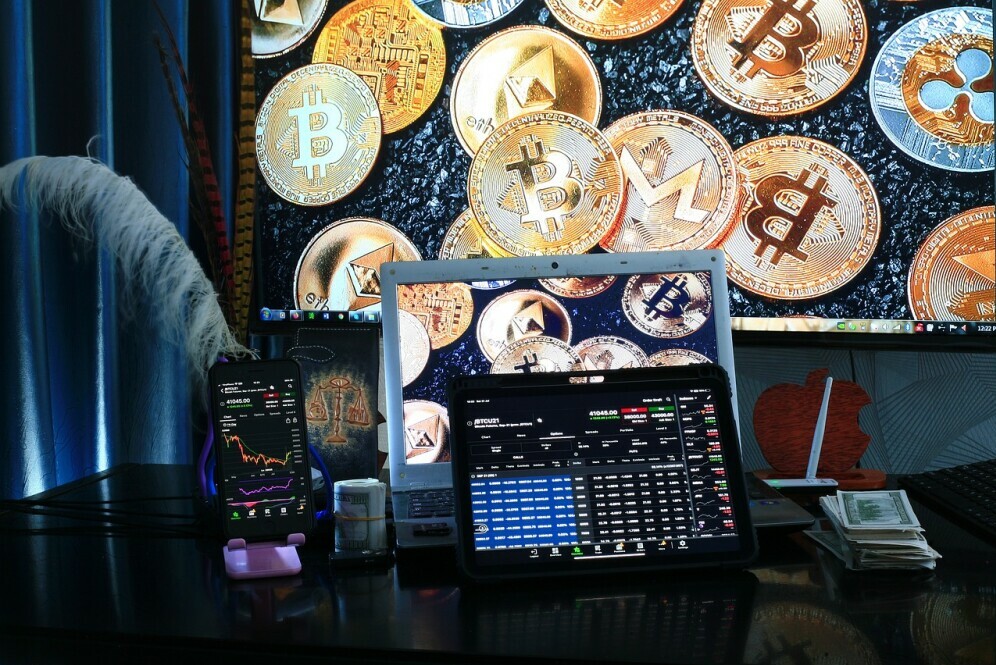If you’re venturing into the vibrant world of cryptocurrencies, you’re going to need a reliable way to manage and secure your digital assets. That’s where cryptocurrency wallets come into play. They’re not just about keeping your digital currency somewhere safe; they’re also about giving you the control to manage them at your fingertips.
Cryptocurrency wallets are software programs or physical devices that store your public and private keys. What’s important to understand here is that your coins aren’t actually ‘in’ the wallet. Instead, they exist on the blockchain, and your wallet interacts with the blockchain to let you conduct transactions. Essentially, the wallet is your personal interface for the cryptocurrency network.

Security is paramount when it comes to cryptocurrency wallets. The private key is what grants you ownership and control over your funds, and if someone else obtains it, they can easily steal your assets. That’s why I can’t stress enough how essential it is to ensure your wallet is secure, and you take various measures to protect your private keys.
Now, you’ve probably heard about different types of wallets, like software and hardware wallets. Software wallets are applications you can install on your computer or mobile device, providing quick and convenient access to your funds. Hardware wallets, on the other hand, are physical devices that store your keys offline for additional security. You’ll choose between these based on your needs for accessibility versus security.
As we move into the next section, we’ll delve into how these wallets cater to a range of cryptocurrencies, from the well-known giants like Bitcoin and Ethereum to the myriad of altcoins populating the crypto space. There’s a lot to consider, from ease of use to the level of security each wallet type provides — and I’m going to help you figure out which one suits your needs best.
Diverse Cryptocurrencies, Diverse Wallets: Tailoring Your Choice
When you’re getting into the world of digital currency, you quickly realize that not all wallets are created equal. The right wallet for you will depend on the cryptocurrencies you want to use and manage. Here’s the breakdown:
First off, you’ve got multi-currency wallets. These are the Swiss Army knives of the crypto wallet world. They let you store, send, and receive various types of cryptocurrencies without needing a separate wallet for each one. This convenience is a major plus, especially if you like to diversify your portfolio.
But what about single-currency wallets? These guys focus on just one type of cryptocurrency. For example, some wallets are designed specifically for Bitcoin or Ethereum. The upside here is that they often provide deeper features and higher security for their focused currency—like custom transaction fees for Bitcoin or specialized smart contract functions for Ethereum.
Let’s bring in some real-world scenarios. Picture a wallet designed for Bitcoin, like the Electrum wallet. It gives you a range of Bitcoin-focused features, including varying levels of transaction fees you can set depending on how quickly you want a transaction to be confirmed. Or consider the Ethereum wallet, MetaMask. It doesn’t just hold Ether—it’s also your gateway to Ethereum’s entire ecosystem of decentralized apps.
In making your wallet choice, it’s not just about the type of cryptocurrencies you want to handle. Think about what you’re going to do with them. If it’s just simple storing and spending, then a multi-currency wallet might be your best bet. But, if you want more control over your transactions or you’re diving into the world of DeFi, then a specialized wallet could be more up your alley.
Finally, don’t forget about the pros and cons of specialized wallets for privacy coins, such as Monero or Zcash. These wallets focus on maintaining transaction anonymity and may involve more complex technologies to preserve privacy.
At this point, you might be curious about additional wallet features—things like in-wallet exchanges and staking that could further influence your choice. Stay tuned; we’re going to cover these advanced features in the next section, which just might sway your decision on what wallet will suit your needs in this rapidly evolving crypto landscape.
Advanced Features and Add-Ons in Modern Crypto Wallets
Think of your crypto wallet as not just a vault, but a versatile tool that’s brimming with features going beyond just holding your digital currencies. It’s got some bells and whistles that can make managing your finances a tad more convenient and a lot more interesting.
For starters, many wallets now come equipped with a built-in exchange. This means that you can trade one cryptocurrency for another without having to leave your wallet’s interface. It’s a big time-saver and keeps things simple, especially for newcomers to the crypto space. If you’re into earning passive income, you’ll appreciate the staking features some wallets offer, letting you earn rewards on your holdings.
Decentralized Finance, or DeFi, has been all the rage, and for good reason. It’s reshaping the financial world as we know it. Modern wallets integrate DeFi applications directly within their interface, allowing you to lend, borrow, and earn interest on your digital assets in a trustless environment. It’s empowering stuff that highlights the potential of blockchain technology.
Let’s talk security. I know, it might not be the flashiest topic, but hang on, there’s some cool stuff here. Two-factor authentication (2FA) has become the norm, adding a layer of security beyond the traditional password. Then there’s multi-signature options, which require more than one person to sign off on transactions. It’s like having a safety deposit box that needs two keys to open — a ‘two heads are better than one’ approach to securing your assets.
Finally, non-fungible tokens, or NFTs, are having their moment in the spotlight. They’re unique digital items you can buy, sell, or collect, and some wallets are now designed to support them. This opens up a whole new world of digital asset management and collecting for enthusiasts and investors alike.
Maintaining and Securing Your Crypto Wallet: Best Practices
You’ve invested in various cryptocurrencies and chosen a wallet that suits your needs. But remember, securing it isn’t a one-and-done deal. Regular updates are crucial. Just as you’d service a car to keep it running smoothly, updating your wallet ensures you have the latest security patches and features. Think of it as a protective measure against the virtual potholes on the digital highway.
Next up, let’s talk about those online tricksters. Phishing – it’s the digital equivalent of a con artist. Don’t take the bait! Stay informed about the common scams and always double-check that you’re using legitimate websites and services. Also, backup your wallet. It’s your crypto life raft – if anything goes awry, you want to know that your funds aren’t lost in the abyss.
A chain is only as strong as its weakest link. The same applies to the security of your cryptocurrency. Even the Fort Knox of crypto wallets can’t protect you if your behavior is more like leaving your car unlocked with the keys in the ignition. Use strong, unique passwords, and consider a password manager. And hey, that two-factor authentication? Use it. It’s like a bouncer for your digital assets.
In the event that you need to recover access to your wallet, it’s important to have your recovery phrase stored safely – think of it as the master key to your digital vault. Different wallets have different recovery processes, so familiarize yourself with yours and keep the recovery information in a safe, secure location, ideally offline. Trust me, a little preparation today can save you a world of stress down the line.

This is a fantastic post! I really appreciate how clearly you break down the different types of cryptocurrency wallets and the importance of securing them. Your explanation of how wallets interact with the blockchain was particularly helpful for understanding the fundamentals. The detailed comparison between multi-currency and single-currency wallets provides great insights for both beginners and experienced users. The section on advanced features like built-in exchanges, staking, and DeFi integration really highlights the evolving capabilities of modern wallets. Security tips like using two-factor authentication and keeping recovery phrases safe are essential reminders for everyone in the crypto space. Looking forward to more posts like this!
Scott
Thank you so much for your kind words, Scott! I’m thrilled to hear that you found the post helpful and informative. It’s great to know that the breakdown of cryptocurrency wallets and the security tips resonated with you. I’ll definitely keep your feedback in mind for future posts. Stay tuned for more insights and updates!
#Cryptocurrency #CryptoWallets #Blockchain #CryptoSecurity #DeFi #CryptoTips #TwoFactorAuthentication #CryptoBeginners #AdvancedCryptoFeatures
Gary